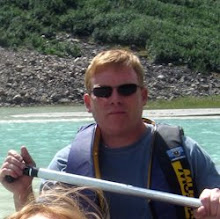We (the directors of PLC-MAP) hope that you will be willing to publish your own blog, recording your triumphs and trials during your first years of teaching. Blogs are like online journals. My wife first taught me about blogs. She publishes a very popular blog about knitting, Amy Knits Texas. You may be interested in knowing why I think writing your own blog would be an excellent use of your time and effort.
Alternative certification programs are becoming an important source of new teachers in many states, especially in the sciences and mathematics. New teachers certified through alternative programs such as PLC-MAP, as do all new teachers, face significant challenges during their first years of teaching. I know this because I taught secondary school in Fiji, as a Peace Corp volunteer, after a whopping month of training.
The central aim of PLC-MAP is to support your teaching through our professional learning community. Not all new teachers, whether certified through traditional or alternative programs are supported in this way. Since these blogs can be read by everyone connected to the Internet, other new teachers who are professionally isolated may gain important support by reading (and commenting) on your own experiences. In this way, you can support your colleagues throughout the United States.
We are going to use the free blogger software available from eblogger.com. Creating you own blog requires little skill and only access to the Internet. By the first seminar, I will create a ring so we can link all our blogs together. Try it, it is pretty cool.







